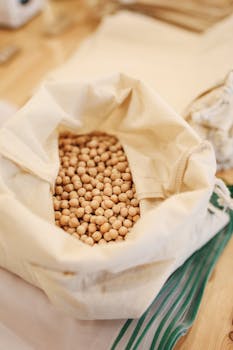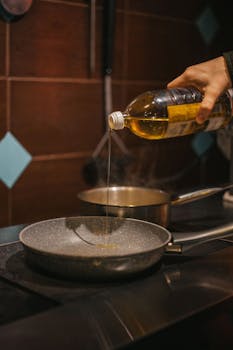As a cat owner, you want your furry friend to stay happy and healthy. But did you know that some common herbs, even ones you might use in your kitchen or garden, can be toxic to cats? Cats have unique metabolisms, and certain plants that are harmless to humans or even other pets can be dangerous for them. Let’s explore which herbs to avoid, safer alternatives, and practical tips to keep your cat safe.
🩺 Vet Insight
Cats are naturally curious creatures, and their tendency to nibble on plants can sometimes lead to trouble. Many herbs contain compounds that cats’ bodies cannot process effectively, leading to symptoms ranging from mild gastrointestinal upset to more severe reactions like liver damage or seizures.
Unlike humans or dogs, cats lack certain liver enzymes that help detoxify harmful substances. This makes them more vulnerable to plant toxins. Even a small amount of a toxic herb can cause significant health issues. As a result, it’s essential to be cautious about what plants and herbs are accessible to your feline friend.
In my years as a veterinarian, I’ve seen cases where cats unknowingly ingested toxic herbs from kitchen counters, gardens, or even herbal teas. Awareness is the first step to prevention, so let’s dive into the details of which herbs are unsafe for cats.
⚠️ Ingredients to Avoid
Here are some common herbs that are toxic to cats and the potential symptoms they can cause:
- Garlic and Chives: Both belong to the allium family and can cause gastrointestinal upset, anemia, or even organ damage.
- Onion: Similar to garlic, onions can damage a cat’s red blood cells, leading to anemia.
- Parsley: While small amounts are generally safe, large quantities of parsley (especially the curly variety) can cause photosensitivity and toxicity due to its furanocoumarins.
- Oregano: This herb can irritate the gastrointestinal tract and cause vomiting or diarrhea.
- Mint (including Pennyroyal): While some mints are mild, Pennyroyal is highly toxic and can cause liver damage or even failure.
- Chamomile: Certain types of chamomile, like German chamomile, can cause vomiting, diarrhea, and allergic reactions in cats.
- Lemongrass: This plant may cause vomiting, diarrhea, or lethargy if ingested in large amounts.
- Marjoram: Known for its culinary uses, marjoram can lead to gastrointestinal distress in cats.
It’s important to note that even herbs marketed as “natural” or “organic” are not automatically safe for pets. Always double-check before introducing new plants to your home or garden.
✅ Safer Alternatives
If you enjoy growing herbs or want to offer your cat a safe way to explore plant life, there are some non-toxic options. These herbs are not only safe but may also provide enrichment for your cat:
- Catnip: A favorite among felines, catnip is safe and can even encourage playful behavior.
- Valerian Root: Similar to catnip, valerian can have a stimulating effect on some cats.
- Thyme: Common thyme is generally non-toxic and can be a safe addition to your herb garden.
- Rosemary: This herb is safe for cats in small quantities and can add a fresh scent to your home.
- Wheatgrass: Often sold as “cat grass,” wheatgrass is a safe and fun option for cats to chew on.
Providing your cat with safe plants can help satisfy their natural curiosity and chewing instincts without risking their health.
💡 Final Advice
Keeping your cat safe from toxic herbs doesn’t have to be overwhelming. Start by identifying potentially harmful plants in your home or garden and placing them out of reach. If you’re unsure about an herb’s safety, consult a trusted source like your veterinarian or a reliable pet care website.
In the event your cat ingests a toxic herb, act quickly. Look for symptoms like vomiting, diarrhea, drooling, lethargy, or seizures, and contact a veterinarian immediately. Early intervention can make a significant difference in your cat’s outcome.
Additionally, consider growing safe herbs indoors or providing cat-friendly plants to redirect their curiosity. A little prevention goes a long way in ensuring your cat stays happy and healthy.
FAQs
Q: How can I tell if my cat has eaten a toxic herb?
A: Symptoms may include vomiting, diarrhea, drooling, lethargy, difficulty breathing, or seizures. If you suspect ingestion, contact your vet immediately.
Q: Are all herbs toxic to cats?
A: No, not all herbs are harmful. Safe options include catnip, rosemary, thyme, and wheatgrass. Always double-check before introducing any new herb to your home.
Book a $49 online vet consultation at https://www.dialavet.com for fast, expert advice.























